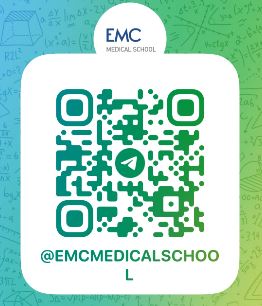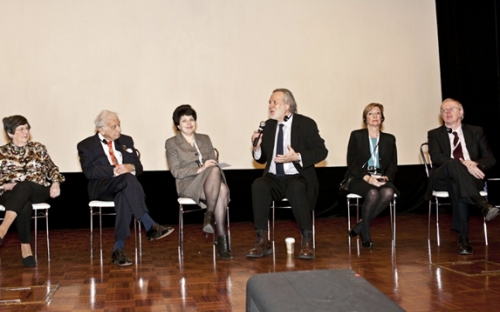April 2013: The first session of the School of Psycho-Social Oncology "Psycho-social approach in clinical oncology" takes place in Moscow, Russia
The first session of the School of Psycho-Social Oncology under the aegis of the Moscow Government and the World Health Organization (WHO), together with the International Psycho- Oncology Society (IPOS), took place from 8 to 10 April 2013. A truly unique event for the Russian medical community was organized by the International Institution of Postgraduate Medical Education and a group of companies “European Medical Centre” (GEMC).
The European Medical Centre (GEMS) acted as the primary sponsor of the event. The silver sponsors were MAQUET GETINGE GROUP, SIEMENS and GE (General Electric Company).
During the 3-day seminar the internationally recognized specialists in psycho-social oncology gave lectures and workshops for 150 oncologists, psychiatrists and clinical psychologists from all Russian regions and Eastern European countries:

Dr. Jimmie C. Holland, MD is the founder of psycho-oncology as a subspecialty in medicine. She also co-founded the International Psycho-Oncology Society (IPOS) and the Psycho-Oncology Department at the Memorial Sloan-Kettering Cancer Centre (MSKCC), a leading oncology clinic in the USA.
Dr. William Breitbart, MD is an American psychiatrist who is an international leader in the fields of Psychosomatic Medicine, Psycho-Oncology, and Palliative Care. Dr. Breitbart, a renowned clinician, researcher, and educator, is the Chief of the Psychiatry Service at Memorial Sloan-Kettering Cancer Center (New York, NY), Interim Chairman and Vice Chairman of the Department of Psychiatry & Behavioral Sciences at Memorial Sloan-Kettering Cancer Center, and a Professor of Clinical Psychiatry at Weill Medical College of Cornell University. He is also a past President of the International Psycho-Oncology Society (IPOS). Dr. Breitbart is a world expert in medicinal treatment of comorbidity and the author of treatment manuals for anxiety, depression, desire for death, and delirium in cancer and AIDS patients.

Dr. David W. Kissane, MD is currently the Head of Psychiatry for Monash University in Australia, recently (from 2002 to 2012) the Chairman of the Department of Psychiatry and Behavioral Sciences at Memorial Sloan-Kettering Cancer Center in New York and previously the Foundation Chairman of Palliative Medicine at the University of Melbourne. At MSKCC, Prof. Kissane established a Communication Skills Training and Research Laboratory, which developed an applied curriculum for oncology, training over 700 clinicians. A care paradigm, developed by him, has been steadily adopted worldwide by palliative care programs and established the benefits of a systemic approach to bereavement care for families.

Maggie Watson, PhD is the current President of the International Psycho-Oncology Society. She is also a Consultant Clinical Psychologist at The Royal Marsden, London, and is Head of the Psychological Medicine Service. She leads a comprehensive psychological and psychiatric assessment and intervention service for adult oncology patients. She is Honorary Professor in the Department of Clinical, Health and Educational Psychology at University College London and Honorary Senior Lecturer at the Institute of Cancer Research.
The formal opening ceremony of the School began with a welcome speech by the Moscow Deputy Mayor for Social Development, Leonid Pechatnikov, in which he stressed the importance of competent psychotherapeutic support for patients with oncologic diseases and emphasized that the Moscow Government was ready to encourage the cultivation of knowledge in the field of psycho-social oncology in Russian clinics.

Speeches were also given by the General Director of the European Medical Centre, Artem Gapeev, the representative of the World Health Organization, Dr. Luigi Migliorini, Director of the Moscow Psychiatry Research Institute, Valeriy Krasnov, Deputy Director of Oncology Research Institute n.a., N.N. Blokhin, Mikhail Lichinitser and an eminent American oncologist – Dr. James F. Holland, a co-developer of the chemotherapy and who was the President of the American Association of Clinical Oncology (ASCO).
Lectures and master-classes were devoted to the topical issues of psycho-oncology:
- Psycho-social aspects of support for the patients with oncologic diseases, and their families;
- Detection and treatment of comorbid oncologic diseases and mental disorders (depression, anxiety, suicide risk, delirium);
- Psychofarmacotherapy protocols in arresting physical symptoms (pain, fatigue, nausea, anorexia) and primary complications;
- Models of psychotherapeutic interventions for comorbid mental disorders and somatic symptoms;
- Models of interdisciplinary oncologic case management and others.
The audience was mostly interested in the Communication Skills Training directed by its creator Dr. David W Kissane. The aim of the training is to educate and support the specialists in developing skills to discuss with the patient the diagnosis, transition from curative to palliative care, bringing into focus the issues of dying and death, treatment of difficult patients, who feel anger and desperation. The physicians shared their experience, talked about challenges in working with cancer patients and their relatives and about the need to introduce such programs to the medical institutions.
A unique master-class “Psychological help without psychologists” was held by Maggie Watson. It was aimed at teaching the clinicians the fundamentals of psychological help for cancer patients and their families when informing them about their diagnosis, before they can turn to the psychiatrist with their problem. The physicians shared their experience, talked about challenges in working with cancer patients and their relatives and about the need to introduce such programs to the medical institutions.
The 3-day program ended with a round-table conference, in which leading Russian psychiatrists and oncologists participated together with the foreign speakers. During the conference the international specialists discussed the need to create a regular educating program on psychosocial oncology and to introduce psycho-oncology services in Russian clinics on a legal basis. Another issue discussed was the creation of a national Association of Psychosocial Oncology, which can serve as an expert in the new developing discipline in Russian medicine.
According to the speaker and Director of the School Organizing committee, Natalia Rivkina: “It is important that during the school session we can acquire foreign experience and at the same time generate our own assessment and build up our own system of psychosocial support compatible with our mentality and culture. We expect to implement such a system in every hospital and oncology centre in Russia”.
Following the session of the School of Psycho-Social Oncology, the International Psycho-Oncology Society (IPOS) suggested that the Russian Association should be included in the IPOS federation system. This will enable our country to create educational programs, conduct research and participate in large-scale international research projects.
The session has set a continuous educational program, which will allow the education of more and more specialists thus spreading knowledge across all regions of Russia. The main goal of the School is uniting oncologists, psychologists and psychiatrists to develop clinical recommendations, medication therapy standards, psychotherapy, and rehabilitation support for the patients, all of which will become the basis for the psycho-social support as a part of routine care for cancer patients.







